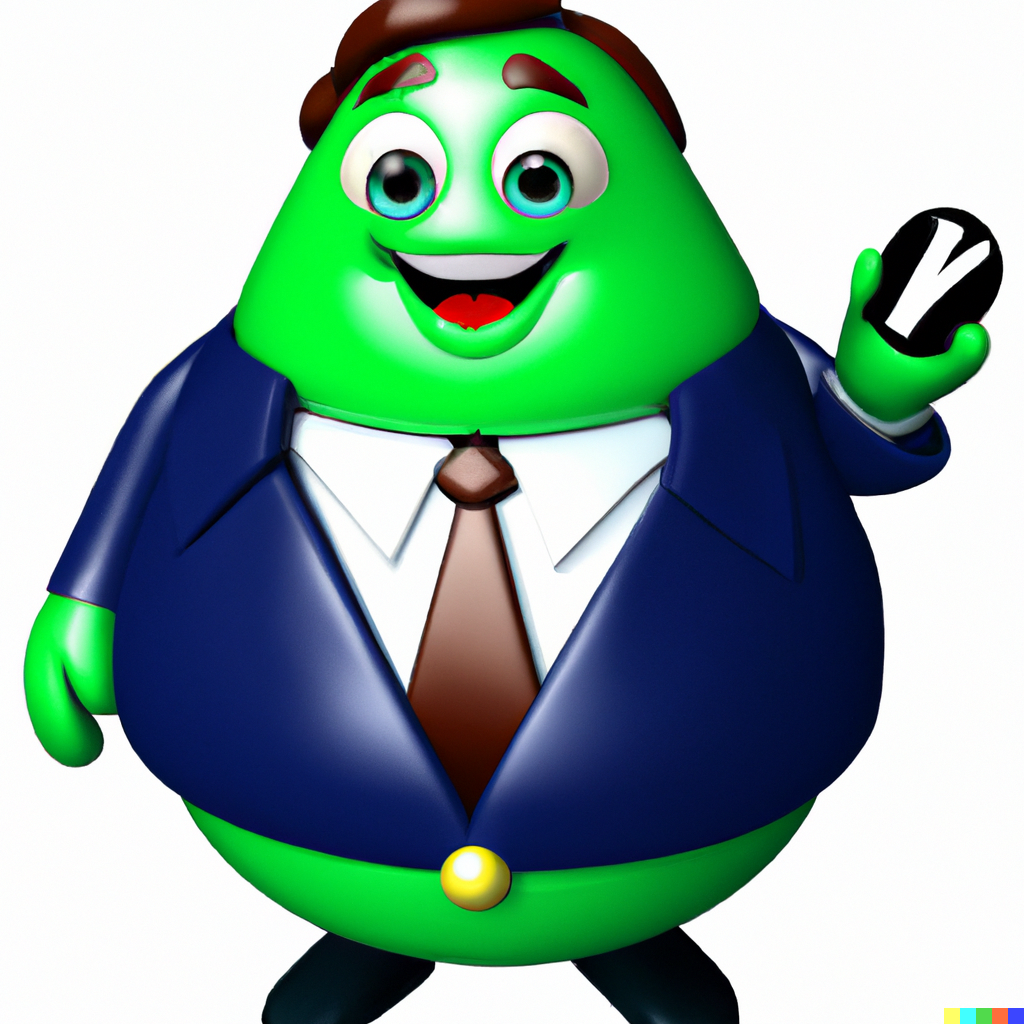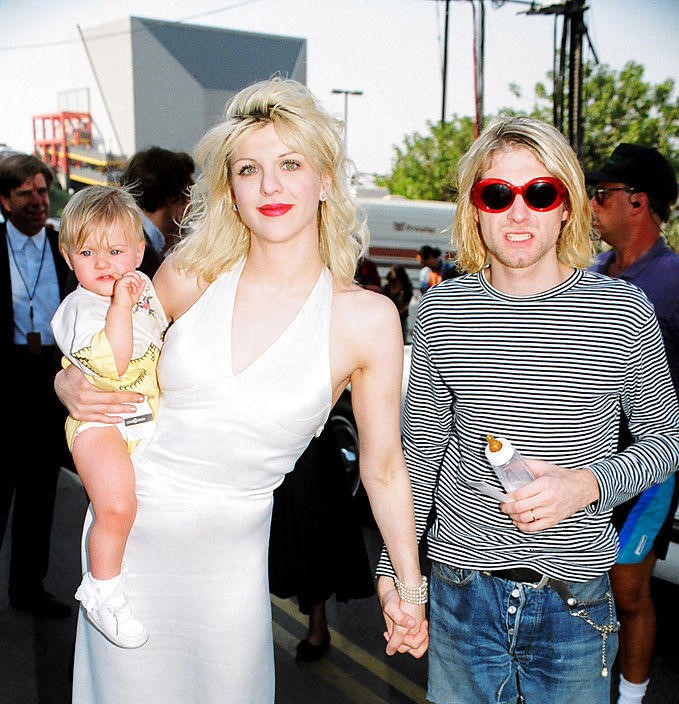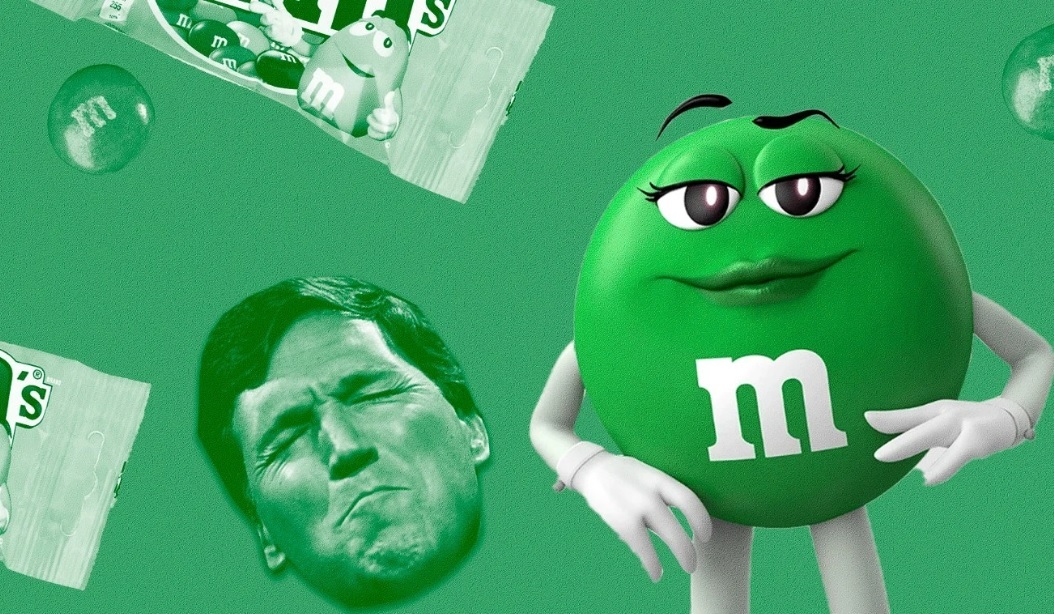All Stories

Once upon a time, in a parallel universe far, far away, Tucker Carlson was a popular news anchor on Fox News. He had a loyal following of viewers who tuned in to hear his opinions on the latest political issues. However, one day, Tucker began to feel disillusioned with the world of cable news. He grew tired of the endless arguments and debates, and he yearned for something different. One evening, as Tucker was watching TV, he saw a commercial for a new job opening at M&M's. They were looking for someone to fill the role of the Green M&M character, and Tucker was intrigued. He had always been a fan of the candy and thought it would be fun to try something new. The next day, Tucker made the bold decision to leave his job at Fox News and apply for the role of the Green M&M. To his surprise, he was offered the job, and he eagerly accepted. At first, Tucker struggled to adjust to his new role. He had to wear a large, green, foam suit and speak in a high-pitched, cartoonish voice. He also had to dance and interact with children at events and promotions. Despite the challenges, Tucker soon began to enjoy his new job. He found that he could bring joy and happiness to people in a different way than he had before. He also appreciated the simple pleasures of life, like the taste of chocolate and the sound of children's laughter. As time passed, Tucker became a beloved figure in the M&M's world. He even started to incorporate some of his political opinions into his Green M&M persona, delivering messages of hope and unity to children and adults alike. In the end, Tucker realized that he had found his true calling as the Green M&M. He had left behind the world of cable news and discovered a new way to make a positive impact on the world. And so, he continued to dance and spread joy, with a smile on his face and a piece of candy in his hand.
The issue of housing problems in America has been well-documented in recent years. Skyrocketing housing costs, gentrification, and homelessness have all contributed to a difficult housing market for many Americans. One unexpected consequence of this issue is the decrease in the number of public trash cans in some cities.
At first glance, the link between housing problems and public trash cans may not be immediately apparent. However, the two issues are intertwined in several ways. One of the main reasons why there are fewer trash cans in some areas is due to the cost of maintenance and upkeep. Trash cans need to be emptied regularly, and if they are not maintained properly, they can become a breeding ground for pests and bacteria. As cities and towns struggle with limited budgets and rising costs for housing and other public services, some have opted to cut back on trash can maintenance as a way to save money.
In addition to maintenance costs, another reason for the decrease in public trash cans is related to the issue of homelessness. In many areas of the country, homeless individuals rely on public trash cans as a source of food and other essential supplies. While this may seem like a minor issue, it can become a significant problem when there are not enough trash cans to meet the needs of the homeless population. In some cases, cities and towns have removed public trash cans altogether as a way to discourage homeless individuals from congregating in certain areas.
The decrease in public trash cans has several negative consequences. For one, it can contribute to an increase in litter and pollution in public spaces. Without adequate trash cans, people may be more likely to leave their trash on the ground or in other inappropriate places. This can make neighborhoods look unkempt and unsanitary, which can further exacerbate the housing crisis by discouraging potential residents from moving to the area.
Moreover, the lack of trash cans can also have an impact on public health. Trash cans that are not emptied regularly can attract pests such as rats and other vermin, which can carry diseases that can be harmful to humans. In addition, when trash is left on the ground, it can attract insects that can also carry diseases.
In conclusion, the decrease in public trash cans in some areas of America is a symptom of the larger housing crisis that is currently affecting the country. While it may seem like a minor issue, the lack of trash cans can have significant consequences for public health, the environment, and the overall quality of life in affected communities. As cities and towns continue to grapple with the issue of housing affordability, it is important to recognize the ways in which this issue can impact other aspects of public life and work towards solutions that benefit everyone.
Tucson Arizona.
Local Pharmacist Michelle at Walgreens in rural Tucson Arizona takes pride in her job and nothing is more satisfying than denying healthcare to second class citizens and elderly because of insurance glitches.
"I've been waiting for this moment my entire life, " said Michelle . " Nothing is more satisfying to me than saying to NO to filling a prescription of life saving medicine for a child with cancer because of a small typo. Just seeing that look of despair on the customers face knowing their children will go without their life saving medicine is everything I've been working for. Whether it's a typo an insurance error, or something I could have spent 15 seconds of research and easily corrected, there is nothing more satisfying than saying NO and laughing about it to co-workers as soon as the customer leaves. I mean, yes Absolutely nothing would have happened to me if I filled this non-narcotic readily available, commonly prescribed medication, anyway, as this was clearly a mistake the pharmacist before my shift had made, there is nothing that gives me more joy than bureaucracy. " Michelle stated as she continued to mislabel other medications with the wrong instructions and insurance information.
Courtney Love recently claims she lost a role in Fight Club alongside Brad Pitt because she refused to allow him to be cast as Kurt Cobain

Courtney Love says she was almost in Fight Club.
In fact, the rocker said on Monday's episode of WTF With Marc Maron that she was officially cast to play Marla — the role that ultimately went to Helena Bonham Carter — in the 1999 cult classic. Love claimed that she was fired from that movie after she "went nuclear" on Brad Pitt and director Gus Van Sant when they approached her around the same time about a project based on her late husband, Kurt Cobain. She shut the whole thing down.
"I wouldn't let Brad play Kurt," Love said.




